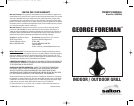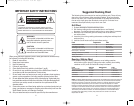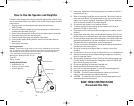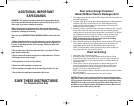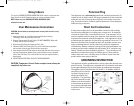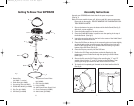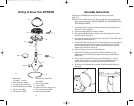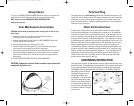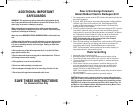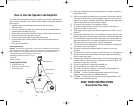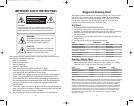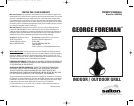Special offers from our partners!

Find Replacement BBQ Parts for 20,308 Models. Repair your BBQ today.
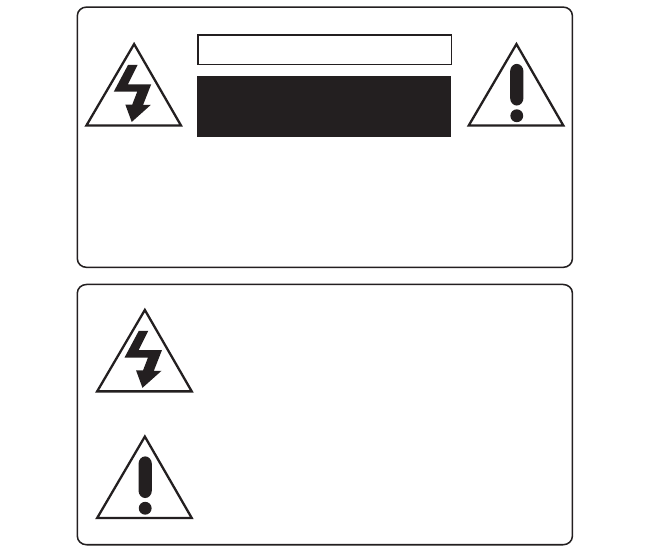
112
IMPORTANT SAFETY INSTRUCTIONS
When using electrical appliance, basic safety precautions should always
be followed, including the following:
1. Read all instructions.
2. Keep these instructions.
3. Heed all warnings.
4. Follow all instructions.
5. Clean Audio Stand only with dry cloth (item 2, pg.6).
6. Do not block any ventilation openings of the Audio Stand. Install in
accordance with the manufacturer’s instructions.
7. Do not install near any heat sources such as radiators, heat registers,
stoves or other apparatus (including amplifiers) that produce heat.
8. Do not defeat the safety purpose of the polarized plug. A polarized plug
has two blades with one wider than the other. If the provided plug does
not fit into your outlet, consult an electrician for replacement of the
obsolete outlet.
9. Protect the power cord from being walked on or pinched particularly at
plugs, convenience receptacles, and the point where they exit from the
Audio Stand. Use the cord Storage Provided.
10. Only use attachments/ accessories specified by the manufacturer.
Suggested Cooking Chart
The following times are meant to be used as guidelines only. Times will vary
due to the cut or thickness of the meat being cooked. To be sure that the
food is truly done, use a cooking thermometer. If the meat does need more
time to cook, simply place the meat back on the grill for 5 minutes incre-
ments and check periodically so you don’t over cook.
Grill Chart
1. Preheat INDOOR/OUTDOOR BARBEQUE GRILL
2. Grill food according to the recommended time or until desired
doneness. Turn halfway through cooking time, or more often if necessary.
3. Boneless cuts of meat will grill more evenly and not scratch the
non-stick surface.
4. Leave the lid on during cooking to decrease cooking time and keep food
moist and juicy.
5. Let thick cuts of meat rest 5 minutes before serving.
CAUTION
RISK ELECTRIC
SHOCK; DO NOT OPEN
CAUTION:
TO REDUCE THE RISK OF ELECTRIC SHOCK, DO NOT
REMOVE COVER. NO USER-SERVICEABLE PARTS INSIDE.
REFER SERVICING TO QUALIFIED SERVICE PERSONNEL.
CAUTION
This symbol is intended to tell the user
that important operating and servicing
instructions are described here.
WARNING
This symbol is intended to tell the user
that parts inside the product pose a
risk of electric shock to persons.
Food
Temperature Time
Chicken Breast halves 4 20-30 minutes
Fish steak 1 inch thick 4 20 minutes
Hamburgers (4 oz each) 4 5-15 minutes
Pork chops, 1 inch thick 5 20-35 minutes
Sausage, fresh(do not preheat) 4 20-30 minutes
Steak, 1/2 inch thick 5 5-12 minutes
Shrimp, 26 to 30 5 10-15 minutes
Food Amount
Temperature Time
Beef pot roast 2-4 lbs. 4 2-3 hours
Whole chicken fryer 2.5-4 lbs 5 1-1.5 hours
Fresh ham 5-7 lbs. 5 1.5-2.5 hours
Pork Roast 2-4 lbs. 5 1.25-2.25 hours
Baked Potato wrapped in foil 1-8 4 1.25-1.5 hours
Roasting / Baking Chart
Place meat or Poultry in a baking container, cover baking container
with aluminum foil or glass lid. Using oven mitts, carefully place baking
container on Grill, cover Grill with Lid to keep in moisture.
NOTE: The United States Department of Agriculture recommends that meat and poultry be
cooked to the following internal temperatures to be sure any harmful bacteria has been
killed. Ground turkey and chicken should be cooked to an internal temperature of 165˚F
and ground beef, veal lamb and pork be cooked to an internal temperature of 160˚F.
Chicken and turkey should be cooked to an internal temperature of170˚F for white meat
and 180˚F for dark meat. Goose and duck should be cooked to an internal temperature
of180˚F. Fresh beef, veal and lamb, ect. should be cooked to an internal temperature of
145˚F. Fresh pork should be cooked to an internal temperature of at least 160˚F. When
re-heating meat and poultry products, they should also be cooked to an internal
temperature of 165˚F.
GR_GIPOD200_IB_5-12-06 12/7/06 2:14 PM Page 3



